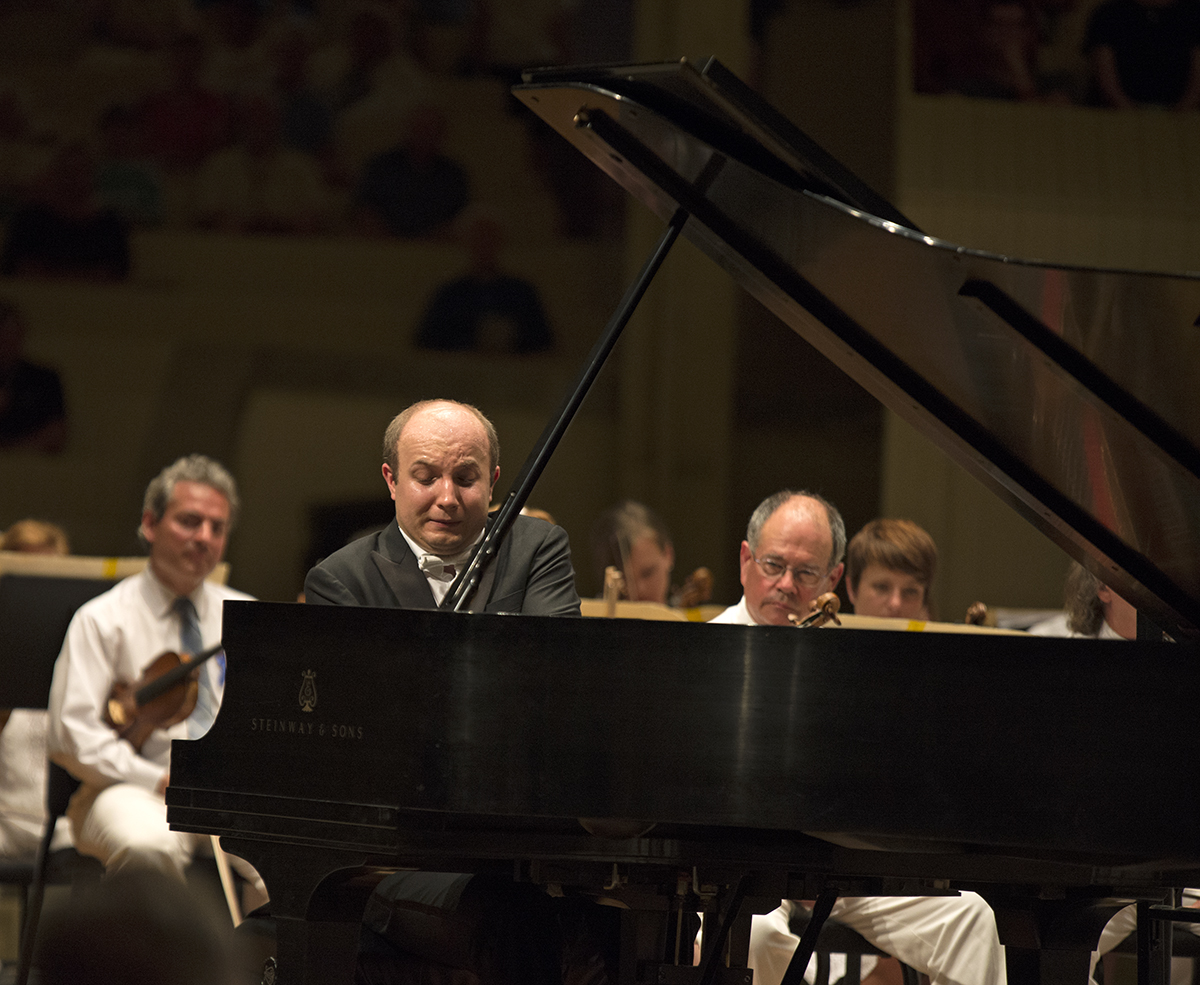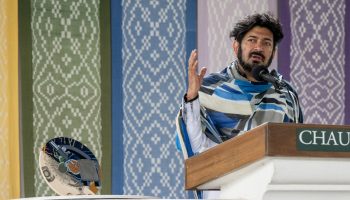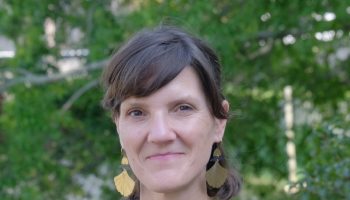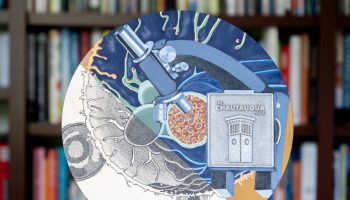Tonight’s Chautauqua Symphony Orchestra concert will lead audience members through an exploration of the different genres that Pyotr Ilyich Tchaikovsky touches with his work, said Rossen Milanov, music director and principal conductor of the CSO.
The show, titled “Total Tchaikovsky,” brings together the music of the symphony with elements of voice and dance.
The evening will open with the CSO performing Polonaise from Eugene Onegin, Op. 24. Next, soprano Abigail Rethwisch will sing while the CSO plays “Was I not a little blade of grass?” from Seven Romances, Op. 47, No. 7.
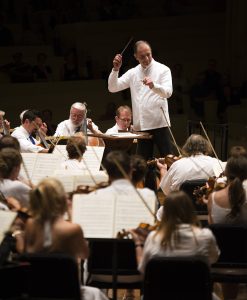
Rossen Milanov, music director, conducts the Chautuauqua Symphony Orchestra in Igor Stravinsky’s Petrushka.
The Pas de deux from “Swan Lake,” Op. 20 will feature Alessandra Ball James and Josh Hall, dancers from the Charlotte Ballet.
“‘Swan Lake’ is certainly one of those emblematic pieces that is famous for its music,” Milanov said. “And it is also famous for its choreography.”
Milanov said he has a lot of experience with ballets; he led a premiere of “Swan Lake” in Zurich, Switzerland, earlier this year. The production was a reconstructed version of the original “Swan Lake” played in St. Petersburg in 1895. Milanov said he plans to produce that same show again in November in Paris with a ballet company from Milan, Italy.
“So, I feel very comfortable doing that piece even with my back to the dancers,” Milanov said.
Glenda Lucena, ballet mistress for the Festival dancers, is staging the dance from the original choreography by Marius Petipa. She said the piece is from Act II of “Swan Lake” when the princess has been turned into a swan. The entirety of the ballet uses Tchaikovsky’s music, which she said is beautiful.
The dancers will perform the pas de deux in front of the orchestra on stage, something they had previously done while performing “Romeo and Juliet” in Charlotte.
“[The musicians] kept saying, ‘We’re so sorry, you barely have any room,’ and I was like, ‘Are you kidding? This is like a dream come true,’ ” Ball James said. “Even though we don’t have much room to dance, having the conductor right there — literally I could have kicked him in a lift — [and] being on stage with all of the musicians was so incredibly special.”
Hall said dancing with live music not only heightens the experience for the dancers, but for the audience experiencing it as well. The music for this piece, Ball James said, “melts your heart.”
“It’s like this beautiful respect between the musicians and the dancers,” Ball James said. “We’re so excited to be on stage with them. … We don’t know too much about their world. They don’t know too much about ours, but we’re really fascinated and in awe of each other and I love that.”
The final selection will feature solo pianist Jon Nakamatsu on Piano Concerto No. 1 in B-flat minor, Op. 23.
As a child, this was the first concerto Nakamatsu fell in love with. He said he grew up thinking he would never be able to play it.
Nakamatsu never attended a music conservatory, but rather majored in literature and education at Stanford University. He said his musical studies were private, but very serious.
A high school German teacher for six years, Nakamatsu did not begin his career as a professional musician until the 1997 Van Cliburn International Piano Competition.
His first place success in that competition, he said, changed his life overnight.
“That is when this life started and the other one ended,” Nakamatsu said.
The Second Piano Concerto is a cornerstone of the classical piano repertoire. Nakamatsu defined the selection as one of the most exciting and brilliant piano concertos ever written.
“Even if you don’t know classical music,” Nakamatsu said. “When you hear the beginning of this piece, you will know you have heard it somewhere before.”
That universal familiarity to Tchaikovsky’s music prompted Milanov to make this concert the second of the “Into the Music” series.
“The goal of these programs is to really take a piece of familiar music that almost everybody would recognize and give them a little bit more of a deeper understanding of what happens below the surface,” Milanov said.
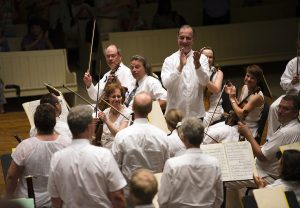
Music Director Rossen Milanov applauds soloists from the woodwind section following the Chautauqua Symphony Orchestra’s performance of Igor Stravinsky’s Petrushka.

